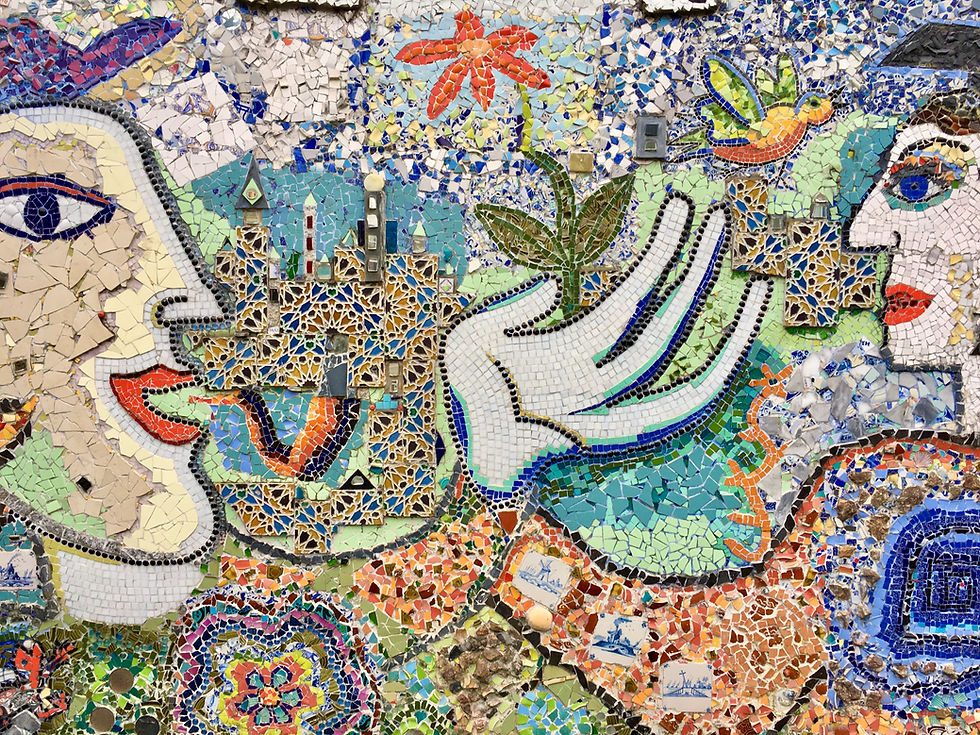Innovation, agility and resilience: how do organizations adapt better in times of crisis?
- Violaine Des Rosiers
- Mar 23, 2020
- 3 min read

A recent research by Harvard Business Review and Mastercard found that the biggest challenges to innovation within organizations today are: Day-to-day demands limiting time/resources for innovation, siloed data/information across departments, technology that is not serving the innovation purpose, lack of clear process for managing innovation, lack of senior management vision/buy-in, a risk-averse organization, lack of right talent, difficulty scaling up successful innovation pilots, lack of analytic capabilities to try/learn from new ideas, government regulation, inability to calculate ROI and poor or insufficient data.
If you recognize yourself in those statistics don't worry, you are possibly part of the majority of organizations that has not taken yet the time to really analyse the benefits that innovation can have on your resilience, as well as of your customers, employees, suppliers and business partners. Although crisis, like the one we are experiencing right now, open our eyes on a lot of the failed systems and processes within our organization, wouldn't it be better to have the systems and procedures in place before a crisis takes place?
Innovative and "genuinely" socially responsible organizations will thrive out of this world economic and social crisis. How so? Because innovative organizations are more resilient, more adaptive and more human-centred. It is part of their DNA as oppose to be a communication strategy, sitting in the PR office and waiting to be deployed to manage reputational risks.
What are they doing differently?
Innovative and responsible organizations all have common characteristics such as:
They rely more on data than on intuition and are 1) connected to a variety of external networks outside their area of work that give them access to new data and, 2) are able to generate research and data internally. They know they cannot win alone, so they nurture a wide range of cross sectoral collaborations that can leverage their impact even further and make decisions based on cutting edge knowledge.
They are human-centred and they develop new solutions based on the needs of people, with the people, which allows them to constantly reframe their understanding of what’s happening and incorporate the insights of employees, costumers or beneficiaries in every step of the innovation process;
The top leadership is committed and believes in innovation as a crosscutting management approach. The vision cascades down into all activities, programs, and departments of the organization, with cross fertilization between them;
They encourage failure for learning and performance purposes, they use prototyping with short cycles of testing, and they value an entrepreneurial (intrapreneurial) mindset among all employees;
They have agile management systems and the ability to survive and thrive through unpredictable, changing, and potentially unfavorable events like the ones we are experiencing right now. They don't let bureaucracy get in their way.
At The Organiks, our mission is to support organizations to achieve greater social impact. We equip leaders, managers, employees, volunteers and community members with innovative, environment-specific methods and tools so that they can thrive in a context of constant change.
We are aiming at making organizations and their people more innovative and resilient so they remain relevant to the people and the cause they serve. We want you to foster multisectorial collaborations and use the right processes and tools to adapt your structures to the needs of those at stake. We propose different tools to diagnose where your organization stand on the innovation spectrum, and what can be improved to increase your positive social impact and your resilience in a sustainable way.
Recommended readings
I recommend you reading an interesting article highlighting the value of organizational preparedness for facing crises and continue to lead in difficult times.



Comments